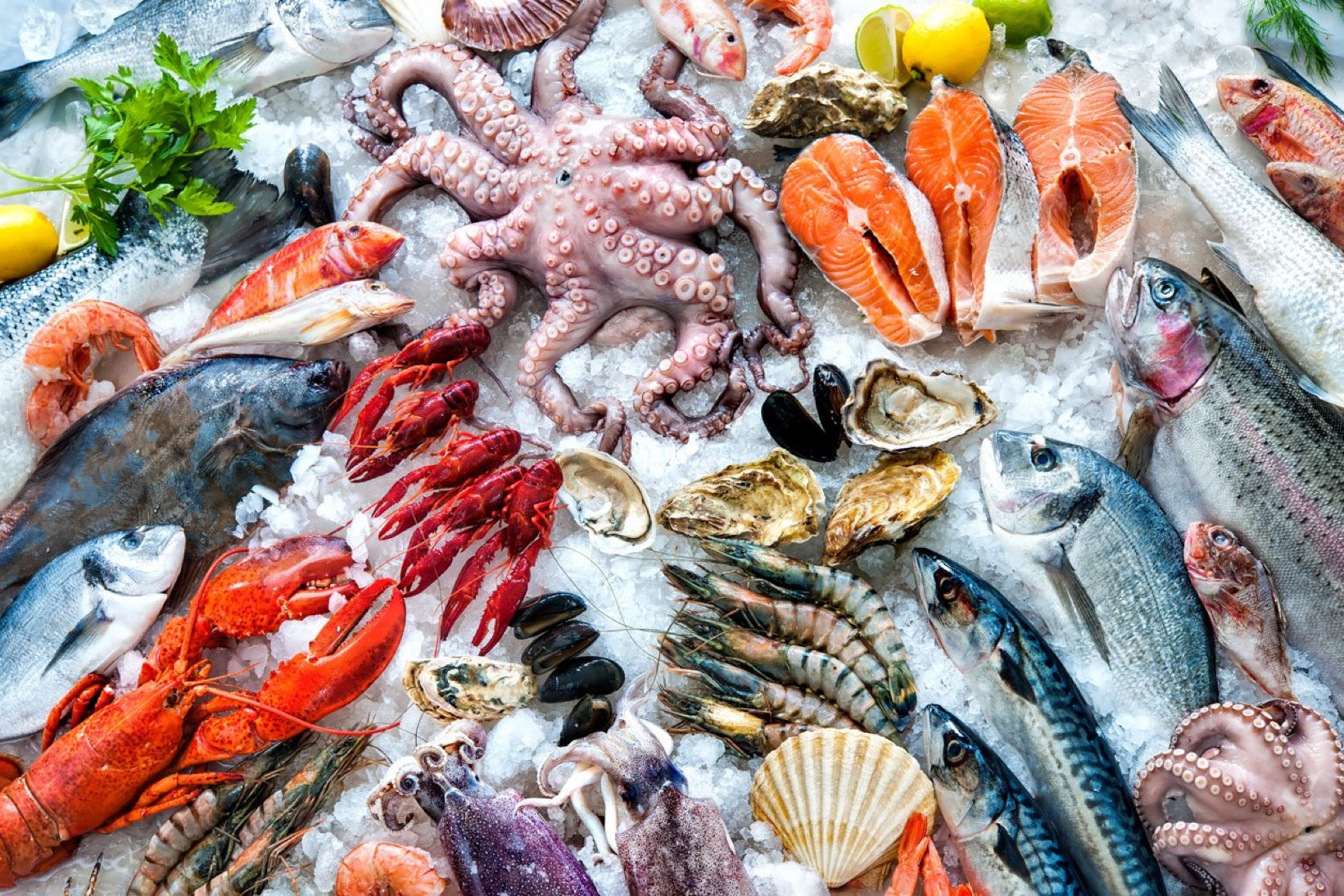Dopamine is a neurotransmitter that plays a key role in many brain functions, including motivation, reward, learning and memory. The proper functioning of the dopamine system is essential for overall health and well-being. One important factor that can support the dopamine system is DHA (docosahexaenoic acid), an omega-3 fatty acid that is abundant in seafood.
DHA is an essential fatty acid, meaning that the body cannot make enough of it and must be obtained through the diet. This fatty acid is essential for the proper development and functioning of the brain, especially in the area of the dopamine system. In this article, we will focus on the mechanisms by which DHA supports the dopamine system and the importance of consuming seafood as a source of this important nutrient.
Mechanisms of action of DHA on the dopamine system
DHA (docosahexaenoic acid) is an omega-3 fatty acid that plays a key role in brain function and neuronal health, especially in relation to dopamine. Here is an overview of some of the mechanisms by which DHA supports the dopamine system:
1. Increases GDNF production:
- DHA increases the levels of GDNF (glial cell line-derived neurotrophic factor), which is a growth factor that supports the survival of dopamine neurons and their proper function [1]. GDNF protects dopamine neurons from damage and promotes their regeneration, which can have a positive effect on the function of the dopamine system.
2. Modulation of D2 dopamine receptors:
- DHA acts as a positive allosteric modulator of D2 dopamine receptors, which means that it increases the effectiveness of these receptors and thus promotes dopamine signaling [2]. D2 receptors play a key role in the regulation of dopamine release and their proper function is essential for the optimal functioning of the dopamine system.
3. Increases the activity of tyrosine hydroxylase:
- Tyrosine hydroxylase is a key enzyme in dopamine synthesis that converts tyrosine to L-DOPA, a precursor to dopamine. DHA increases the activity of this enzyme, which can lead to higher production of dopamine [3]. Increased tyrosine hydroxylase activity may contribute to maintaining optimal dopamine levels in the brain.
4. DHA around dopamine receptors:
- DHA forms a "wrap" around dopamine receptors, which can improve signal transmission and the overall activity of these receptors, thereby promoting more efficient dopamine signaling [4]. This mechanism may contribute to better communication between neurons and improve the functioning of the dopamine system.
5. Retinoid-X receptor ligand:
- DHA is a ligand for the retinoid-X-receptor (RXR), which affects the production and activity of dopamine downstream, which means that the interaction between DHA and RXR can have an impact on dopamine signaling and neuroplasticity [5]. RXR is a nuclear receptor that regulates the expression of genes involved in various biological processes, including the development and functioning of the nervous system.
Why seafood?
Seafood is the best source of DHA. Fatty fish such as salmon, mackerel, sardines and tuna contain high levels of DHA [6]. In addition, eating seafood outdoors can provide other health benefits, such as increased exposure to sunlight, which promotes vitamin D production, which can further support overall brain health [7].
Recommendation
Regular consumption of fatty fish such as salmon, mackerel, sardines and tuna is recommended to optimize the benefits of DHA. Research shows that increased intake of DHA is associated with better cognitive function, neuroprotection and overall brain health [8, 9]. The recommended daily intake of DHA is between 250-500 mg, which can be achieved by eating seafood at least twice a week [10].
In addition to eating seafood, DHA can also be obtained from dietary supplements such as fish oil or microalgae. These supplements can be a suitable alternative for people who do not consume enough seafood or have specific dietary requirements [11].
Conclusion
DHA plays an important role in supporting the dopamine system and overall brain health. This omega-3 fatty acid affects the functioning of the dopamine system through various mechanisms, such as increasing the production of GDNF, modulating D2 receptors, increasing tyrosine hydroxylase activity, and interacting with the retinoid-X receptor. Regular consumption of seafood rich in DHA or the use of dietary supplements containing DHA can help optimize the functioning of the dopamine system and support cognitive function and neuroplasticity.
It's important to remember that DHA is only one factor that affects the dopamine system, and a comprehensive approach including a healthy diet, regular exercise, adequate sleep, and stress management is essential for overall brain health. However, including DHA in the diet can be a valuable asset in supporting the dopamine system and overall brain health.
Links:
1. https://www.ncbi.nlm.nih.gov/pmc/articles/PMC6024833/
2. https://www.ncbi.nlm.nih.gov/pmc/articles/PMC5603098/
3. https://pubmed.ncbi.nlm.nih.gov/16216930/
4. https://www.ncbi.nlm.nih.gov/pmc/articles/PMC4772061/
5. https://pubmed.ncbi.nlm.nih.gov/28223116/
6. https://ods.od.nih.gov/factsheets/Omega3FattyAcids-HealthProfessional/
7. https://www.ncbi.nlm.nih.gov/pmc/articles/PMC3356951/
8. https://www.ncbi.nlm.nih.gov/pmc/articles/PMC4772061/
9. https://www.ncbi.nlm.nih.gov/pmc/articles/PMC6566772/
10. https://www.heart.org/en/healthy-living/healthy-eating/eat-smart/fats/fish-and-omega-3-fatty-acids
11. https://ods.od.nih.gov/factsheets/Omega3FattyAcids-HealthProfessional/#h3





Leave a comment
This site is protected by hCaptcha and the hCaptcha Privacy Policy and Terms of Service apply.